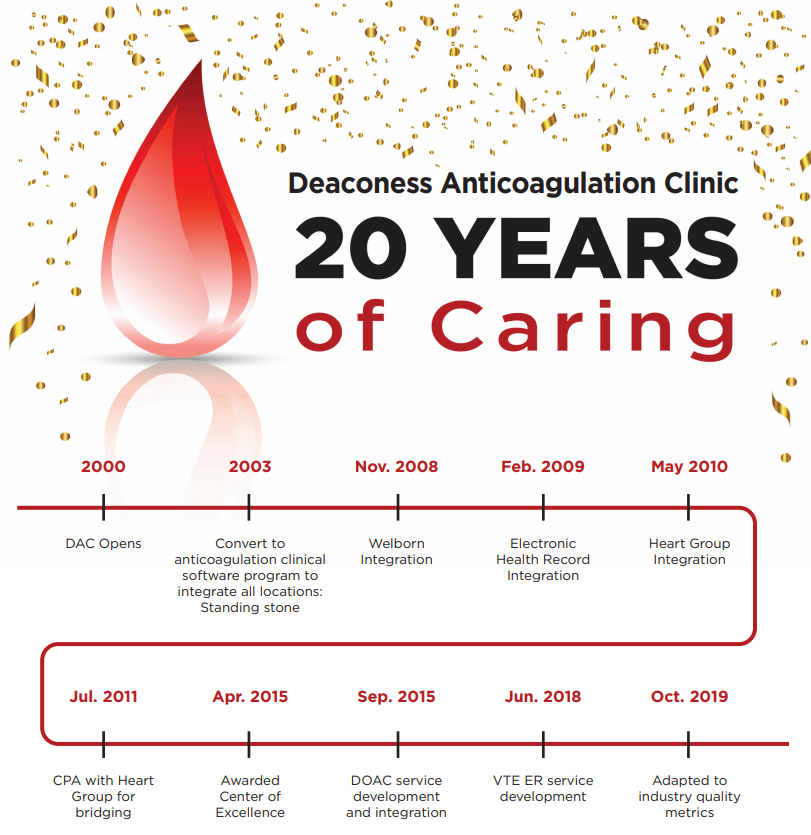
Anticoagulation Clinic
Our Approach
The Deaconess Anticoagulation Clinic is committed to improving outcomes for patients taking anticoagulant medication. Anticoagulants, more commonly known as blood thinners, can protect against heart attacks, strokes and blood clots, but carry the risk of increased bleeding.
Our team of experts monitors and adjusts medication as needed. We provide guidance and support making sure you are an active participant in your care at every step.
With three convenient locations and an after-hours nurse line, the anticoagulation specialists at Deaconess are ready to meet your health care needs.
What is a blood thinner?
Blood thinner is a general name for medications that help blood flow smoothly through your arteries and veins. There are two primary types of blood thinners, anticoagulants and antiplatelets.
Anticoagulants keep your blood from clotting, or turning into solid clumps of cells that stick together. Anticoagulants help prevent stroke in patients with atrial fibrillation (a-fib) as well as treat and prevent blood clots.
Some popular anticoagulant medications include:
- Apixaban (Eliquis®)
- Dabigatran (Pradaxa®)
- Edoxaban (Savaysa®)
- Fondaparinux (Arixtra®)
- Heparin (Fragmin®, Innohep®)
- Enoxaparin (Lovenox®)
- Rivaroxaban (Xarelto®)
- Warfarin (Coumadin®, Jantoven®)
While most medications come in a pill form, some blood thinners (like heparin and fondaparinux) are given as a shot or through an IV, either in the hospital or at home.
Antiplatelets are the second type of blood thinner. They target tiny particles in the blood called platelets. Examples include:
- Aspirin
- Clopidogrel (Plavix®)
- Ticagrelor (Brilinta®)
- Prasugrel (Effient®)
(Antiplatelet medications aren’t monitored by the Deaconess Anticoagulation Clinic.)
Blood Tests
Anticoagulants are designed to keep your blood flowing smoothly, not too fast and not too slow. Finding this middle ground takes regular monitoring and adjustment of the medication amounts.
Your provider will have your blood work checked on a regular basis to be sure the medication is at the safest and best dose for you.
For warfarin, a blood test called International Normalized Ratio (INR) measures how quickly your blood clots and represents how much or how little the medicine is working to prevent blood clots. This blood test consists of a fingerstick and provides results within minutes. Expect testing one or two times per week until levels are stable.




